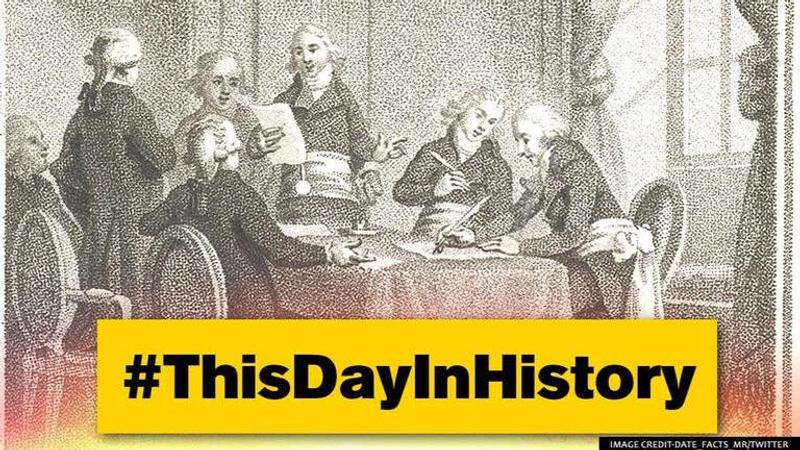Published 19:54 IST, September 7th 2020
Treaty of Hague between England, Austria, and Netherlands was signed on this day in 1701
The Treaty of the Hague, aka Treaty of Den Haag, was signed on this day, i.e September 7, back in 1701 between Great Britain, Austria and the Netherlands.

The Treaty of the Hague was signed on this day, i.e September 7, back in 1701 between Great Britain, Austria and the Netherlands. The treaty, which is also known as the Treaty of Den Haag, reconstituted the 1689 anti-French Grand Alliance in response to the issues that resulted in the War of the Spanish Succession.
(Image: @date_facts_MR/Twitter)
According to anecdotes, the war was a dynastic struggle between the Habsburgs and Bourbons over the Spanish throne. However, allocation of territories and commercial interests were equally important as contemporaries viewed Dutch and English support for the Habsburg cause as primarily driven by a desire for access to the Spanish American markets.
Between 1690 and 1704, English import duties were increased by 400 per cent while the ‘Navigation Acts’ had been a major factor in the Anglo-Dutch wars. On September 6, France banned the imports of English manufactured goods like cloth. The French officials had also imposed prohibitive duties on a wide range of other goods.
The next day, i.e. September 7, Britain, Emperor Leopold and the Dutch Republic the signed the Treat of Hague reconstituting the Grand Alliance, which was an anti-French coalition between England, Australia and Netherlands. In addition to assigning Spanish territories in Italy and the Spanish Netherlands to Austria, the main provision included securing the Dutch Barrier, the Protestant succession in England, commercial access for England and the Dutch Republic to the Spanish Empire but made no reference to placing Archduke Charles on the Spanish throne.
(Image: @KeesVlaar/Twitter)
Provisions of Treaty of Hague
After signing the Treaty of Hague, when James II, who was the King of England and Ireland, died a few days later, Louis reneged on his commitment at Ryswick to accept the result of the 1688 Glorious Revolution and proclaimed his Catholic son James Francis Edward King of England and Scotland. The Grand Alliance than in 1702 declared war on France, followed by the Imperial Diet on September 30.
The provisions of the Treat of Hague concealed several important issues. Firstly, neither England nor the Dutch Republic could allow France to control the Spanish Netherlands but preferred to assign it to Austria who saw it as a burden, not an asset. Secondly, who sat on the Spanish throne concerned England and the Dutch because of the commercial implications, an issue less important to Leopold. The difference over the relative importance assigned to Italy and Spain also led to tensions between the Allies later in the war.
Updated 19:54 IST, September 7th 2020






